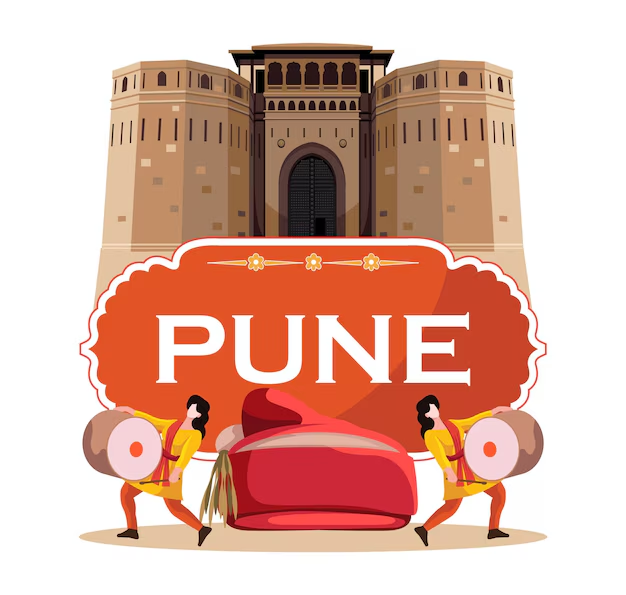
How did music evolve in Pune city? How was Pune’s early music scene?
Pune, often referred to as the cultural capital of Maharashtra, has a rich musical heritage that has evolved significantly over the centuries. From ancient traditions to contemporary genres, the city’s musical landscape reflects its diverse history, vibrant culture, and the confluence of various influences. This article explores the evolution of music in Pune, tracing its roots from classical traditions to modern trends.
Historical Context
The history of music in Pune can be traced back to its establishment as a major center of learning and culture in the 17th century during the reign of Chhatrapati Shivaji Maharaj. Pune was a hub for artists, poets, and musicians, fostering a vibrant cultural milieu. The city’s proximity to the Western Ghats and its strategic location made it a melting pot for various cultural influences, including those from neighboring regions.
In the early years, traditional forms of music like Hindustani classical music thrived in Pune. Renowned musicians and composers made significant contributions, shaping the classical music scene. The city’s association with figures like Ustad Alladiya Khan, a prominent figure in the Gharana (school) tradition of Hindustani classical music, helped establish Pune as a vital center for classical music.
The Influence of the Bhakti Movement
The Bhakti movement in Maharashtra, which gained momentum in the 15th and 16th centuries, also played a crucial role in shaping Pune’s musical landscape. Saints like Dnyaneshwar and Tukaram emphasized devotional music, which resonated deeply with the local populace. The integration of simple, heartfelt lyrics with music allowed for widespread participation, fostering a sense of community and spirituality.
The tradition of Abhangas, devotional songs dedicated to Lord Vithoba, became particularly popular. These songs, characterized by their rhythmic patterns and emotional depth, formed the bedrock of Marathi folk music and influenced subsequent musical developments in Pune.
Classical Music and Gharanas
As Pune developed into a cultural hub in the 19th and early 20th centuries, several music schools and Gharanas emerged, further enriching the city’s classical music scene. The Gwalior Gharana and the Jaipur-Atrauli Gharana were among the most notable influences. Ustad Amir Khan, a pioneer of the Indore Gharana, also contributed to Pune’s music culture through his innovative approach.
The establishment of institutions like the Pune Music Society in the early 20th century provided a platform for classical musicians to showcase their talents. Concerts and festivals became increasingly popular, allowing for greater public engagement with classical music. Pune also became home to numerous music festivals, such as the Sawai Gandharva Bhimsen Festival, which celebrates the legacy of the legendary musician and is a significant event on the classical music calendar.
Folk Music Traditions
Parallel to the classical scene, Pune has a rich tapestry of folk music traditions. The Warli and Lavani styles, among others, reflect the cultural diversity of the region. Lavani, characterized by its energetic rhythm and engaging lyrics, often addresses social issues and celebrates life. This folk genre became popular in theatrical performances and has been influential in shaping the region’s cultural identity.
The traditional folk instruments, such as the dholki and lezhim, also play a significant role in Pune’s musical heritage. These instruments are commonly used in festivals and local celebrations, providing a sense of community and continuity in the cultural fabric of the city.
The Modern Era: Fusion and Contemporary Music
As Pune progressed into the late 20th and early 21st centuries, the city witnessed an explosion of musical diversity. The rise of fusion music became a defining feature of this era, blending classical elements with contemporary genres such as rock, jazz, and pop. This musical evolution was driven by a new generation of artists eager to experiment and explore different sounds.
The establishment of music schools and workshops, such as the Furtados School of Music and the Pune School of Music, has played a crucial role in nurturing young talent. These institutions offer a range of programs, from Western classical to Indian classical music, encouraging students to explore various genres. This exposure has led to the emergence of numerous local bands and artists who incorporate a mix of influences in their music.
The Pune music scene has also seen the rise of live music venues, fostering a culture of performance and collaboration. Places like High Spirits and Swig serve as platforms for both budding and established artists, allowing them to share their music with diverse audiences. This vibrant nightlife contributes to Pune’s reputation as a city that embraces musical innovation and creativity.
The Role of Technology and Social Media
The advent of technology and social media has transformed the way music is created, distributed, and consumed in Pune. Platforms like YouTube and Spotify have made it easier for artists to reach a global audience, enabling local musicians to gain recognition beyond regional borders. This digital landscape has also facilitated collaborations among artists from different genres, further enriching Pune’s musical tapestry.
Social media has become a powerful tool for promoting events and connecting with audiences. Local festivals, open mic nights, and music competitions are now widely publicized online, allowing for greater participation and engagement from the community. This accessibility has democratized the music scene, empowering emerging artists and fostering a sense of camaraderie among musicians.
To summarise,
The evolution of music in Pune is a testament to the city’s rich cultural heritage and its ability to adapt to changing times. From its classical roots to the vibrant fusion of contemporary genres, Pune’s musical landscape continues to thrive and evolve. The city’s commitment to preserving traditional forms while embracing modern influences ensures that its musical legacy will endure for generations to come.
As Pune moves forward, it remains a beacon of creativity and cultural expression, where musicians and music lovers alike come together to celebrate the power of music in all its forms. Whether through classical concerts, folk performances, or modern fusion, the spirit of Pune’s music scene is alive and well, reflecting the dynamic and diverse nature of this remarkable city.
